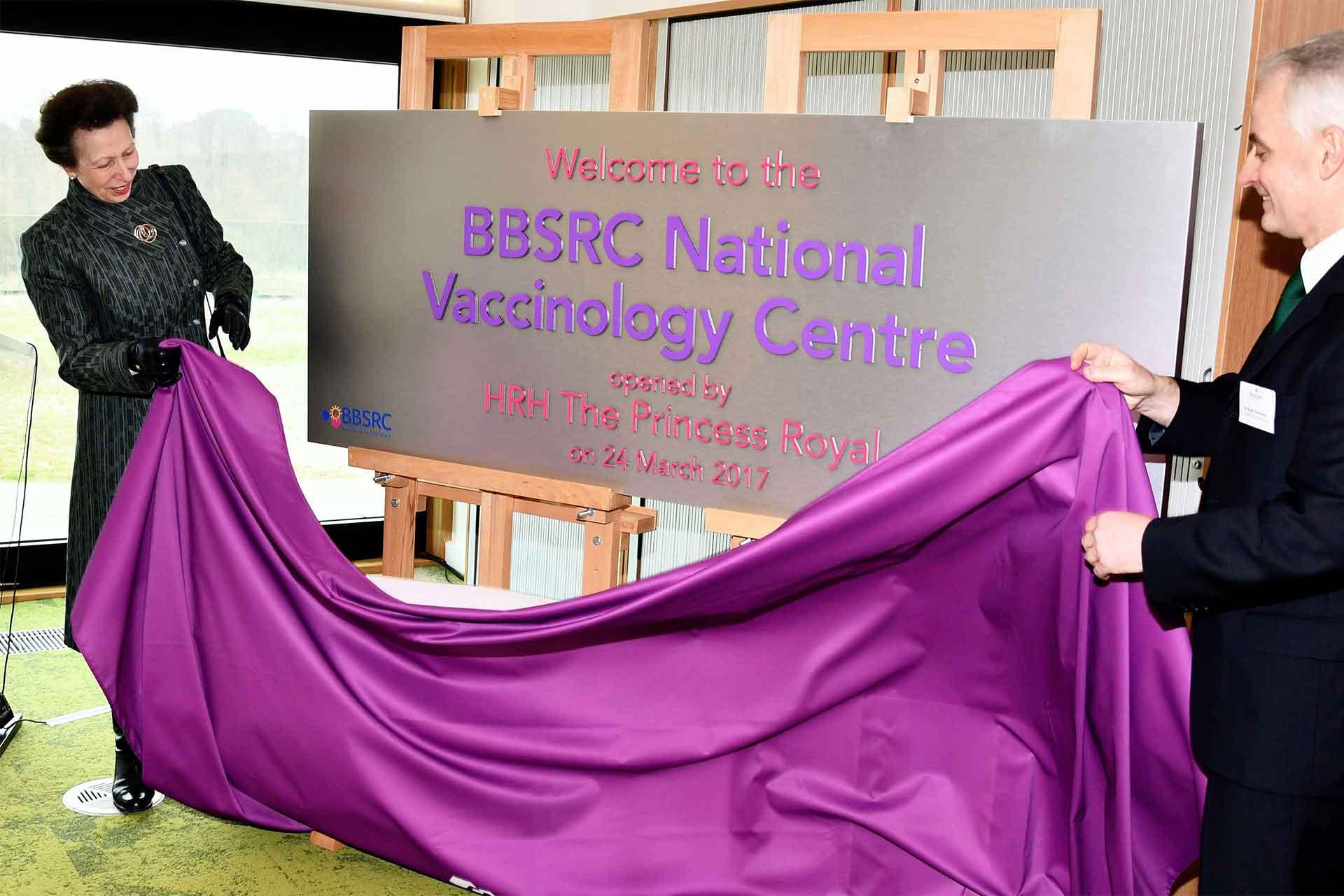HRH The Princess Royal officially opened the BBSRC National Vaccinology Centre: The Jenner Building today (24 March, 2017) – a world leading vaccine development facility, located at The Pirbright Institute in Surrey.
The BBSRC National Vaccinology Centre accommodates 100 scientists working on cutting-edge research to generate exciting new vaccines for a variety of livestock diseases, including those that can spread to humans. Scientists at the facility mainly focus on poultry diseases such as avian influenza (bird flu) and Marek’s disease, but they also develop vaccines for other animal viruses such as the devastating African horse sickness virus (AHSV).
Construction of the BBSRC National Vaccinology Centre cost £24 million, which was part of a £350m strategic capital investment from government through The Biotechnology and Biological Sciences Research Council (BBSRC), as part of its continued commitment to support the UK’s world-leading position in bioscience through development at the Pirbright Campus.
Recent breakthroughs at Pirbright include using new technologies that facilitate the development of a new-generation of genetically modified (GM) vaccines. These are quicker and cheaper to produce and more crucially, are capable of protecting against a variety of diseases – paving the way for universal vaccines against several different strains of virus such as avian influenza.
Pirbright is a world-leader in the development of new vaccines and diagnostics and provides a national surveillance and response capability to the UK for a range of high consequence livestock virus diseases and those that spread from animals to humans. Pirbright is home to the World Reference Laboratory for foot-and-mouth disease and UK/EU reference laboratory for bluetongue disease.
Dr Bryan Charleston, interim director and CEO of The Pirbright Institute, said: “We are very honoured to have HRH The Princess Royal here today to officially open the BBSRC National Vaccinology Centre: The Jenner Building.
“Our innovative new facilities will enable scientists to develop a greater understanding of virus-host interactions and how best to combat diseases using the latest technologies including the genetic modification of vaccines and viruses.
“Extensive investment by BBSRC and the government in our infrastructure and the unique expertise of our scientists and staff, well position the Institute to continue to deliver innovative world-leading science that provides economic and health benefits on a global scale”, he said.
